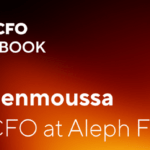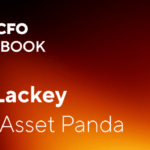5 Ways to harness discipline while scaling
When you’re a CFO at a scaling company, you have to show restraint in order to keep up momentum.
Tony Russo, CFO of the modern data analytics company Imply, believes operational discipline is integral to success:
‘I’m a big believer in no more than three priorities a quarter…you want to build a culture of achievement and feeling good and success. Not: my list is growing and it’s not getting any shorter and we can’t get anything done. So it’s super important to prioritise.’
Recently, we interviewed Tony on The CFO Playbook podcast, where he shared his tips for balancing speed with discipline while growing a company.
1. Back up spending with a plan
When your company is growing quickly, you have to have the discipline to not make hasty spending decisions.
Even if the expenses appear to be warranted at face value, Tony draws a hard line:
‘I just will flat out not approve…expenses or head count without a plan. If we’re thinking about expanding somewhere, one-offs don’t work. What’s the plan?’
By investing the time upfront to come up with a structure and a plan for spending, you can be more nimble in the long run.
2. Evaluate exit opportunities early
It takes a lot of work on the backend to prepare the diligence required for a merger, acquisition, or IPO.
With multiple successful M&A transactions under his belt, Tony takes a measured and strategic approach to evaluating opportunities:
‘When I come into a company, I always think about what it’s going to look like? Are we going to be ready to sell or IPO? So I try to start instrumenting things with that in mind from the beginning and develop a two- to three-year plan to get there.’
Planning for exit opportunities early gives you the space to have the right legal, sales operations, HR, and procedures in place to get ahead of diligence.
3. Keep the finance team lean by utilising technology
When the finance department is overwhelmed, the easy fix can feel like increasing headcount.
Tony favours a lean and nimble finance team as a business is scaling. Rather than solely attacking the problem by hiring, he recommends staying abreast of the latest technology:
‘I think we need to hire some more folks right now, but then we also need to think about what software we can implement over the next 12 months that might help with raising our awareness without cranking out so many spreadsheets.’
Make sure the technology you invest in helps make a small team even more powerful.
4. Make sure your values are aligned
Companies with clear mission statements and values make it easier for employees to come back to their purpose, even as they’re growing quickly.
Whether Tony is evaluating a CFO opportunity at a new company or recruiting for his finance team, he underlines value alignment as the most important factor:
‘When we’re recruiting, we’re recruiting not only for ability, but also for values and attitude…I believe life is too short to work with people you don’t want to work with. Sometimes you inherit folks that are not aligned and you can have conversations respectful in private and see where it goes.’
Believing in the mission, culture, and ethos of a company means you and your team will do more meaningful work to help drive a successful outcome.
5. Partner with the CEO to hone in on your priorities as CFO
There are always fires to put out when you’re the CFO of a scaling company, but on a day-to-day basis you have to be clear on your priorities.
Tony shared how he determines what is at the top of his to-do list:
‘The most important relationship for me is with the CEO. Basically we’ll work with her or him to figure out what my priorities should be. Because there’s always too much to do.’
When in doubt, align with the CEO to figure out your next step.
Structure allows you to be open to opportunities
Operationally-minded CFOs can partner with the rest of the business and lead with confidence knowing that they’ve implemented the right structure to scale.
Leveraging technology, implementing a strategic approach to spending, hiring for values, and being proactive about exit opportunities are all ways you can build a solid but flexible foundation as CFO.
Sign up to The CFO Playbook Newsletter
Get extra insights from the podcast every Tuesday, to help you thrive in your business and career.







